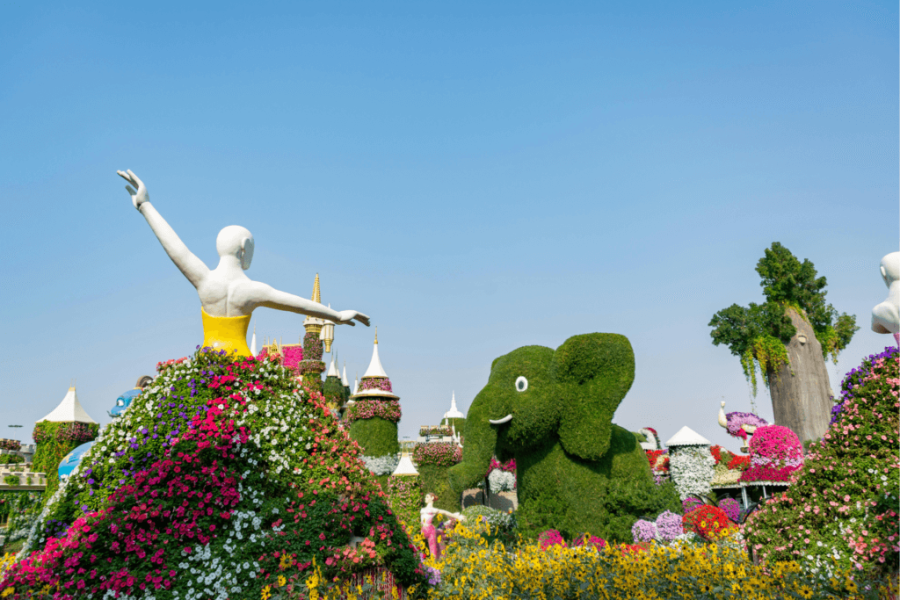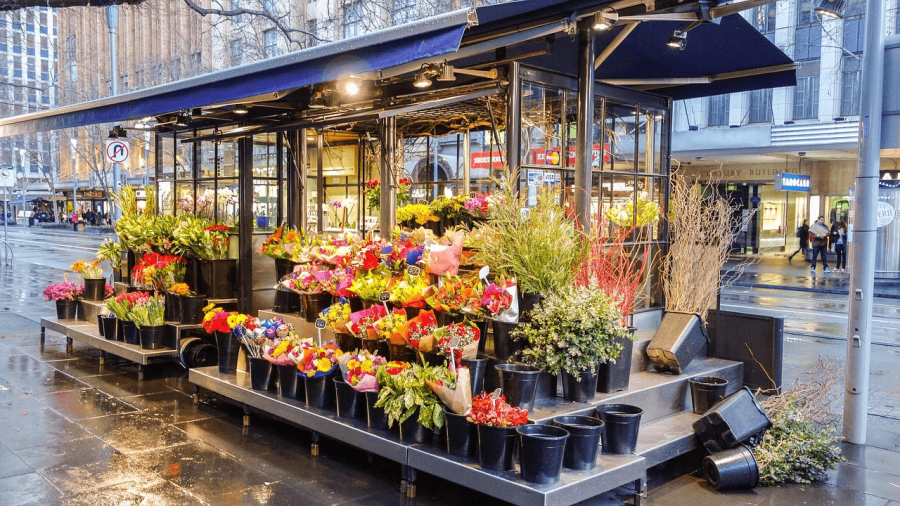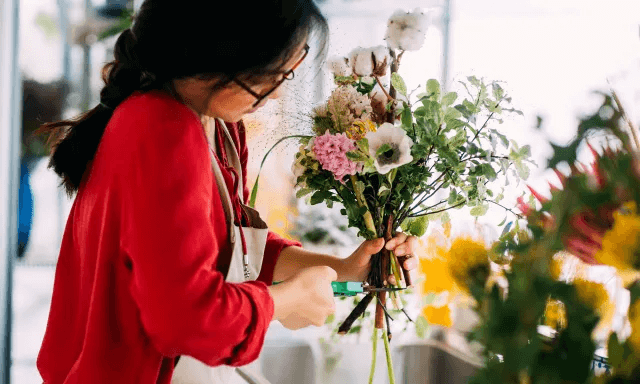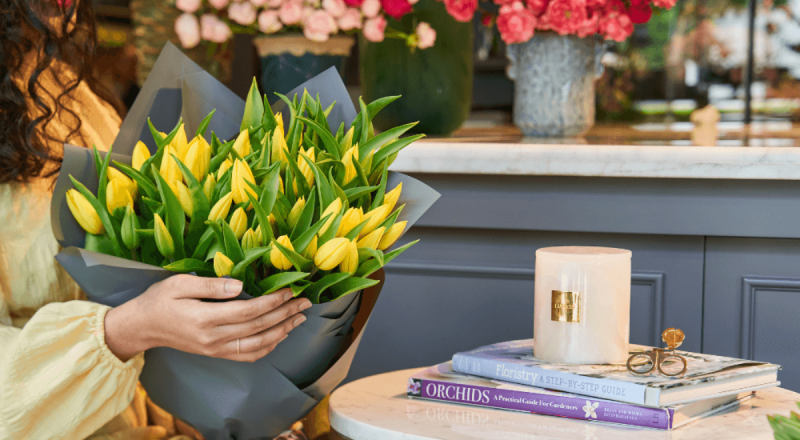Dubai’s climate, characterized by extreme temperatures, low humidity, and intense sunlight, presents unique challenges for selecting and maintaining flower bouquets. The region’s weather conditions can significantly impact the longevity and appearance of flowers, making it essential for residents and florists alike to choose species that can withstand the environment. This article explores how Dubai’s climate affects flower bouquet selection and care, providing practical insights for ensuring that flowers remain fresh and vibrant in this challenging climate.
Understanding Dubai’s Climate
Dubai is situated in a desert environment, with a climate that is hot and arid for most of the year. The city experiences extreme summer temperatures that often exceed 40°C (104°F) during the day, with minimal precipitation and high levels of solar radiation. The humidity levels are generally low, although they can rise during the summer months due to the proximity to the Arabian Gulf.
These climatic conditions are harsh on most plant species, particularly those that are not native to desert environments. Flowers, which are often delicate and require specific conditions to thrive, can struggle in such an environment. Understanding the impact of Dubai’s climate on flowers is crucial for anyone looking to purchase or care for bouquets in the region.
Selecting Flowers for Dubai’s Climate
When choosing flowers for bouquets in Dubai, it is essential to consider species that are more tolerant of heat and low humidity. Some flowers are naturally more resilient to these conditions and can maintain their freshness for longer periods even in challenging environments.
Heat-Tolerant Species
Flowers that can endure high temperatures are ideal for Dubai’s climate. Species such as sunflowers, zinnias, and marigolds are known for their ability to thrive in hot conditions. These flowers not only tolerate heat but also bring vibrant colors to bouquets, making them popular choices in the region.
Drought-Resistant Species
In an environment where water is scarce, selecting drought-resistant flowers is a practical choice. Succulent plants, for example, are well-adapted to dry conditions and can be incorporated into bouquets for a unique and long-lasting arrangement. Flowers like bougainvillea and cacti blossoms also offer drought resistance and can add texture and interest to floral designs.
Tropical Flowers
Although tropical flowers may seem counterintuitive for a desert climate, many tropical species are surprisingly well-suited to Dubai’s conditions. Orchids, for instance, can handle the heat when kept in a shaded, cool environment. Birds of paradise and anthuriums are other examples of tropical flowers that can thrive in Dubai, provided they receive adequate care.

Caring for Flowers in Dubai’s Heat
Once a bouquet has been selected, proper care is essential to ensure that the flowers remain fresh for as long as possible. Dubai’s climate necessitates specific practices to counteract the effects of heat and low humidity.
Hydration
One of the most critical factors in caring for flowers in Dubai is ensuring they receive adequate hydration. Flowers should be placed in water immediately after being cut, and the water should be changed daily to prevent bacterial growth. Adding a floral preservative to the water can help extend the life of the bouquet by providing essential nutrients and inhibiting bacterial growth.
Temperature Control
While it may not be possible to control the outdoor temperature, keeping flowers in a cool environment indoors can significantly prolong their freshness. Florists often use refrigerated storage to keep flowers at optimal temperatures before they are arranged into bouquets. For consumers, placing bouquets in air-conditioned rooms away from direct sunlight can help maintain their appearance.
Humidity Management
Low humidity levels in Dubai can cause flowers to dry out quickly. To counteract this, misting flowers with water can help maintain moisture levels. However, it is essential to avoid over-misting, as excess water can lead to fungal growth. Using a humidifier in the room where flowers are kept can also help create a more favorable environment.
Avoiding Direct Sunlight
Direct sunlight can cause flowers to wilt rapidly, especially in Dubai’s intense heat. Bouquets should be kept out of direct sunlight, and if they are displayed outdoors, they should be placed in a shaded area. Additionally, flowers should be protected from the wind, which can further dehydrate them and cause petals to fall prematurely.
Seasonal Considerations
Dubai’s climate varies throughout the year, with significant differences between the summer and winter months. These seasonal variations should be taken into account when selecting and caring for flower bouquets.
Summer Challenges
The summer months in Dubai, from June to September, are particularly harsh, with temperatures regularly exceeding 40°C (104°F). During this time, it is crucial to choose flowers that can withstand extreme heat and to take extra care in maintaining their hydration and temperature. Florists may also recommend smaller bouquets during the summer, as larger arrangements can be more challenging to keep fresh.
Winter Opportunities
While winter in Dubai is mild compared to other parts of the world, it still brings cooler temperatures and slightly higher humidity levels. From November to March, the weather is more conducive to a wider variety of flowers, including those that might struggle during the summer. This period is an excellent time to explore more delicate and seasonal flowers, as they are more likely to remain fresh for longer periods.

The Role of Local Florists
Local florists in Dubai play a crucial role in helping customers navigate the challenges of the climate when selecting and caring for flowers. Florists like Floberry, known for their expertise in creating bouquets suited to Dubai’s conditions, offer valuable advice and high-quality flowers that can withstand the region’s climate.
Expert Guidance
Florists have a deep understanding of which flowers are best suited to Dubai’s climate and can provide recommendations based on the season, the specific event, and the desired bouquet design. They also offer tips on how to care for flowers once they are taken home, ensuring that customers can enjoy their bouquets for as long as possible.
Sourcing and Storage
Florists in Dubai often source flowers from various parts of the world, including regions with climates similar to Dubai’s. By carefully selecting and storing these flowers in optimal conditions, florists can offer bouquets that are both beautiful and resilient. Florists like Floberry also prioritize sourcing flowers from suppliers who practice sustainable and ethical growing methods, contributing to the overall quality and longevity of the bouquets.
The Impact of Climate on Flower Prices
Dubai’s climate can also influence the cost of flowers, as the need for specialized care and transportation can increase expenses. Flowers that are not naturally suited to the region’s climate may require more resources to keep them fresh, including refrigeration, hydration systems, and expedited shipping.
Seasonal Pricing
During the summer months, when fewer flower species are available locally, prices may rise due to the increased cost of importing flowers from other regions. Conversely, during the cooler winter months, when a wider variety of flowers can be sourced locally or regionally, prices may be more stable. Consumers should be aware of these seasonal fluctuations and plan their purchases accordingly.
Sustainability Considerations
The growing demand for sustainably sourced flowers has also influenced pricing. Flowers that are grown using environmentally friendly practices or that are sourced from local or regional growers may come at a premium. However, these flowers often offer better longevity and are more likely to withstand Dubai’s climate, making them a worthwhile investment.

The Future of Floriculture in Dubai
As Dubai continues to grow and develop, the floriculture industry is likely to evolve in response to changing consumer preferences and environmental conditions. The increasing awareness of sustainability and the need for climate-resilient practices will likely drive innovation in flower cultivation, selection, and care.
Technological Innovations
Advances in horticultural technology, such as climate-controlled greenhouses and hydroponic growing systems, could enable more diverse flower species to be cultivated locally, reducing the reliance on imports and lowering costs. These innovations may also improve the quality and longevity of flowers, making them better suited to Dubai’s climate.
Sustainability Initiatives
The UAE government’s focus on sustainability, as outlined in initiatives like the UAE Vision 2021, is likely to influence the floriculture industry as well. Increased investment in sustainable farming practices and the promotion of locally grown flowers could help reduce the environmental impact of the flower trade while also offering consumers more climate-resilient options.
Conclusion
Dubai’s climate presents unique challenges for flower bouquet selection and care, but with the right knowledge and practices, it is possible to enjoy fresh and vibrant flowers even in this harsh environment. By choosing heat-tolerant and drought-resistant species, ensuring proper hydration and temperature control, and seeking the advice of local florists like Floberry, residents and event planners in Dubai can create beautiful floral arrangements that withstand the region’s extreme conditions. As the floriculture industry continues to adapt to the demands of Dubai’s climate, consumers can look forward to a future where flowers are not only more resilient but also more sustainable and environmentally friendly.

I am a powerful force in the workplace and use my positive attitude and tireless energy to help others work hard and achieve success.
